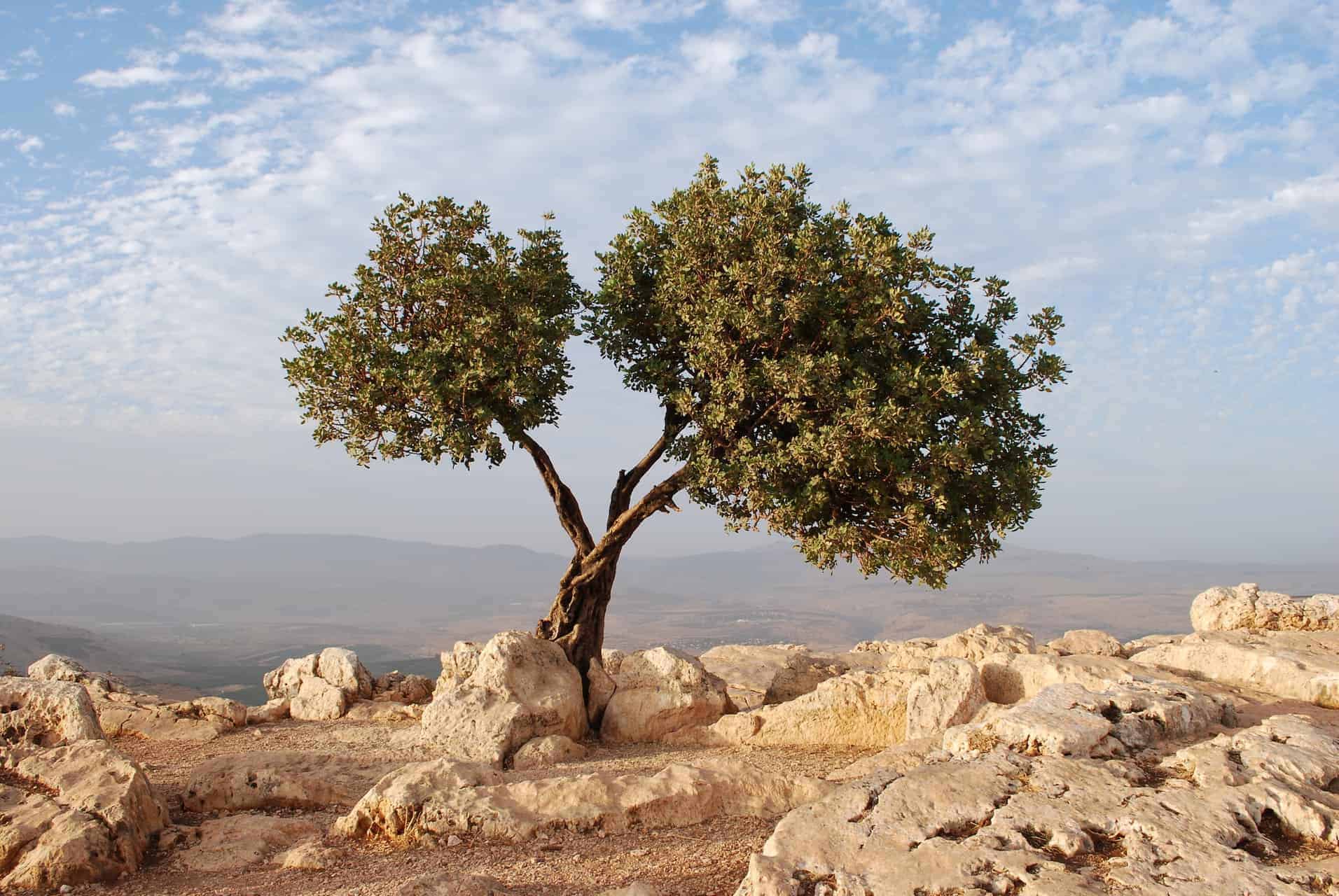Shevat and the Land of Israel – Beshalach 5776
Now that we are in the month of Shevat I would like to continue my theme of the laws of the land of Israel. The seventh year of the agricultural cycle, is known as Shmittah, the Sabbatical year. In Israel, no new crops are planted and only maintenance work is done on crops and trees that already exist. Farmers may not sell their produce or prevent people (or animals) from entering their fields and consuming the crops. Maimonides maintains that one of the effects of this law is to increase the productivity of the land, by having it lay fallow for a year. He and most other commentaries agree, however, that the primary purpose of Shmittah is to allow everyone equal access to the land, and to have the landowners feel like tenants once in a while. This experience will help them understand that “the earth is the Lord’s” and that the main purpose of life is not the accumulation of possessions. The Sabbatical year also provides an opportunity for hard-working farmers to devote more time to Torah study. The observance of Shmittah fell into disuse during the long Jewish exile from the Land. Today, however, with the establishment of the State of Israel, the return of Jews to their homeland and the increase in Jewish observance among Israeli farmers, there are farms and kibbutzim that strictly observe the Shmittah laws. These farmers spend much of their time during the Shmittah year revitalizing their connection to G-d by studying Torah.
In earlier times, Jewish law governed the harvest of crops in Israel. These laws were designed to channel support to poor people, while at the same time allowing them to retain their dignity by having them work for what they received. When a farmer harvested his field he was obligated to leave one corner (paya, in Hebrew), un-harvested, so that the poor could harvest it themselves and keep the produce. When he gathered his sheaves together, any sheaves that he forgot (shikchah) had to be left for the poor to gather for themselves. If he inadvertently dropped any stalks during the harvest (leket), he would leave them for the poor as well.
These laws only apply when there are, in fact, poor people who go to the fields to collect or harvest the grains. Nowadays, however, poor people do not wait near farms for the harvest. Instead, they are generally supported by various charitable organizations and therefore some of these laws are not applied in practice today.
In Temple times, laws that were not related to supporting the needy also regulated planting and harvesting. Some of these laws are still implemented today, while others cannot be. The first fruits to appear on a tree, for example, were taken to the Temple in Jerusalem as an offering. This offering of the first fruits, Bikurim, was another way of expressing gratitude to G-d for His blessings. Since the destruction of the Temple, this mitzvah cannot be fulfilled until the Messianic Era, when the Third Temple will exist.
For the first three years after a tree is planted, the fruit is known as orlah, and it may not be eaten, it is rather left for birds and other animals to eat. The fruit of the fourth year is holy, and therefore we wait for the fifth year to eat of the fruit.108 In Israel, any fruit that might possibly be orlah is prohibited. Outside of Israel, however, unless one knows that the fruit is definitely orlah, it may be eaten.
Similarly, wheat, barley, rye, spelt and oat grains from a new harvest was, in Temple times, not to be eaten until the first sheaf is cut in special manner and brought as an offering in the Temple on the second day of Passover. Any grain that was sown after the bringing of this offering, known as the Omer, was not to be eaten until after the next year’s offering. This prohibition is known as chadash, “new,” referring to the new harvest. Since the destruction of the Temple, we can no longer bring the Omer offering. Nevertheless, grain from the new harvest is still forbidden until the day after the offering would have been brought. There is some controversy about whether this prohibition applies only in Israel or outside as well. Today, most Jews outside of Israel follow the lenient view that chadash does not apply in the Diaspora.
The underlying message of both orlah and chadash is one of restraint and self-control, and the acknowledgement that, since everything ultimately belongs to G-d, it may only be used for purposes that are in keeping with G-d’s plan for the world. We are only free to use the fruit or grain after bringing some to Jerusalem to eat or for use as an offering, acts which impress upon us that everything we have is a gift of G-d.
The prohibition against mixing seeds and grafting different species together, know in Hebrew as kilayim, applies both in and outside Israel. One of the ideas behind this prohibition is the principle that just as in nature there are laws that delineate species, so too there are moral laws that are part of the fabric of Creation. The same G-d Who commanded the plants and animals to appear “in their own species” also has moral demands on the human being. Do not change the nature of Creation, is the central idea of this command.

